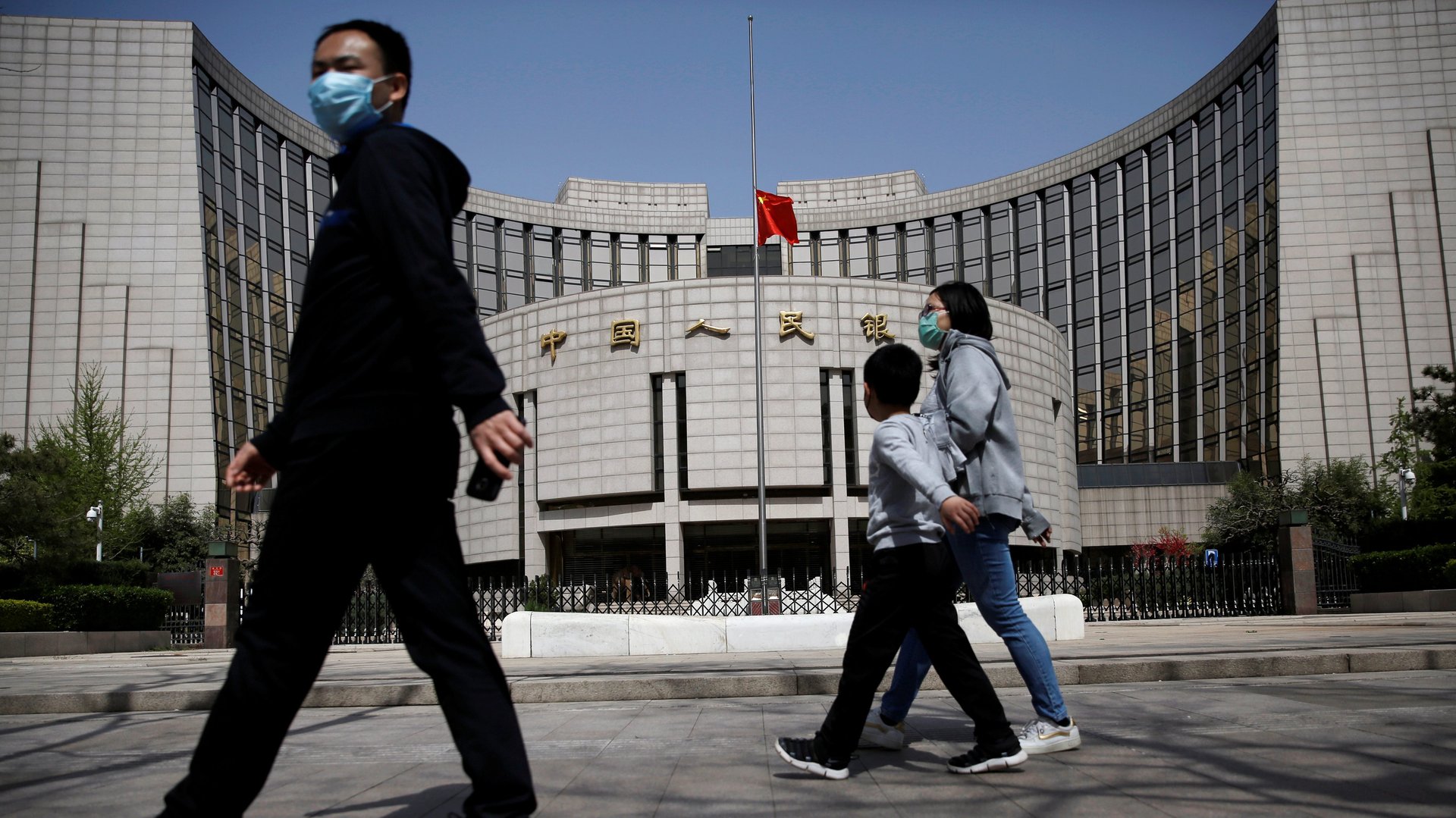Chinese bank losses are projected to exceed the US and Western Europe combined
The coronavirus pandemic is poised to set off trillions of dollars of bank losses, a large chunk of which are forecast to implode at Chinese lenders.


The coronavirus pandemic is poised to set off trillions of dollars of bank losses, a large chunk of which are forecast to implode at Chinese lenders.
Losses at global banks are projected to soar by $926 billion to $2.1 trillion through 2021, according to Standard & Poor’s. Almost $400 billion of that increase is forecast to come from Chinese institutions, compared with a $360 billion increase for those in North America and Western Europe combined. While an impending wave of soured loans isn’t expected to cause a credit crisis, the forecast demonstrates the economic pain that’s anticipated from heightened unemployment and bankruptcies.
China’s outsize losses reflect the sheer size of its mammoth banking sector which, in terms of customer loans, is as big as the US, Japanese, German, and UK systems combined, say S&P analysts. That’s in part because China’s financial system is less diversified than the likes of the US, where the corporate bond market provides trillions of dollars of financing that doesn’t rest on bank balance sheets.
Bank executives from Shanghai to San Francisco are bracing for a tsunami of missed payments and defaults, underscoring just how far the global economy has to go to recover from the pandemic. S&P’s calculations for credit losses are based on banks’ provisions, or expectations, for soured customer loans, as well as direct write-offs. Loss provisions typically precede the actual charge-offs from missed payments and defaults. Immense government support for workers and businesses has partly insulated many lenders from the fallout, for now.
The eye-popping forecasts for Chinese bank losses also reflect strict accounting rules as well as forbearance (such as interest rate reductions) on loans as a result of the pandemic. Many of the banks are state-owned, making a credit crunch less likely (they will continue lending if the government tells them to), and these large banks lend heavily to the country’s state-owed enterprises, which are seen as more stable customers, said Harry Hu, an analyst at S&P. They are still generating substantial earnings, although those profits will likely suffer as the government pushes them to fund infrastructure projects and smaller businesses.
“I don’t think this is going to cause any financial stability concerns,” he said in a phone interview.
That isn’t to say everything is rosy among Chinese banks. Before the crisis, regulators had been cracking down smaller, wobbly lenders. Watchdogs took over Baoshang Bank in Inner Mongolia last year, citing credit risks. But there are signs that that drive has been paused during the pandemic, which has given watchdogs more pressing concerns, Hu said. Although smaller lenders are needed to provide credit to China’s smaller companies right now, scrutiny will likely resume when the economy is on sure footing again.
“The bigger fish to fry is to stabilize the financial market,” he said.